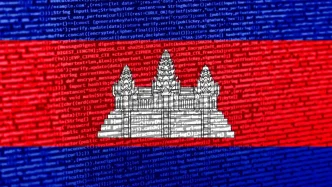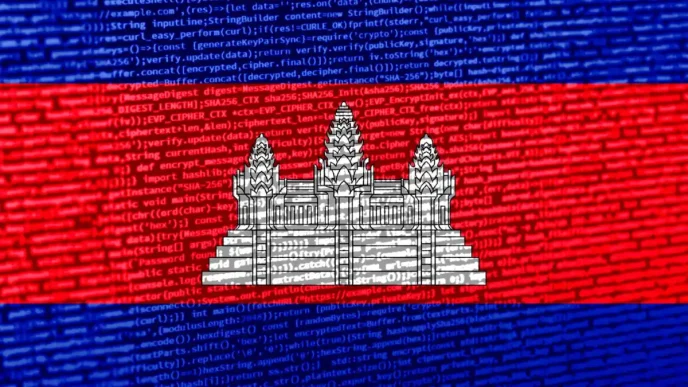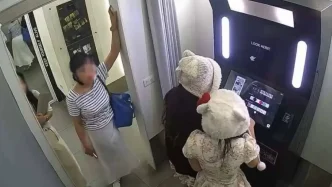In a dramatic turn of events, former Philippine President Rodrigo Duterte was arrested on Tuesday, 11 March, upon his return to Manila from Hong Kong. The arrest, executed under a warrant issued by the International Criminal Court (ICC), marks a significant escalation in the international scrutiny of Duterte’s controversial “war on drugs,” which left thousands dead during his presidency from 2016 to 2022. The charges against him relate to alleged crimes against humanity, and his detention raises profound questions about accountability, sovereignty, and the future of justice in the Philippines.
Duterte, known for his brash style and unapologetic defence of extrajudicial killings in the name of combating drug trafficking, now finds himself in the custody of Philippine authorities, with the prospect of a trial at The Hague looming. Malacañang, the presidential palace, confirmed that Interpol-Manila received the official ICC warrant early on 11 March, and the government has signalled its readiness to cooperate. But as the legal process unfolds, what lies ahead for Duterte, and what does this mean for a nation still grappling with the legacy of his brutal policies?
A Long-Standing Investigation Comes to a Head
The ICC’s investigation into Duterte’s drug war has been years in the making. Launched in 2018, it focused on allegations of systematic killings by state forces and vigilantes, with estimates of deaths ranging from 6,000 to over 30,000, depending on the source. Human rights groups have long accused Duterte of orchestrating a campaign that disproportionately targeted the poor, often without due process. The former president has repeatedly dismissed such criticism, framing his policies as a necessary response to a national crisis.
The arrest warrant, served by Prosecutor General Richard Anthony Fadullon as Duterte disembarked at Manila’s international airport, signifies that the ICC believes it has sufficient evidence to hold him personally accountable. According to the ICC’s procedural guidelines, such warrants are issued only after a request for arrest and surrender is transmitted to the state where the suspect is located, in this case, the Philippines. The court also ensures that the suspect is informed of the charges in a language they understand, alongside their rights under the Rome Statute—the treaty that governs the ICC.
Duterte’s arrest is not an extradition but a surrender process, a distinction the ICC emphasises. This involves national courts confirming the identity of the arrested individual and ensuring their rights have been respected. Once surrendered, Duterte is expected to be transferred to the ICC Detention Centre in The Hague, where detainees are held under strict international human rights standards.
The Legal Road Ahead
The next steps in the legal process are critical. After surrender, Duterte will appear before the ICC’s Pre-Trial Chamber for an initial hearing. This session will confirm that he understands the allegations against him—crimes against humanity related to the drug war—and his rights, including the option to apply for interim release pending trial. Within a reasonable timeframe, a confirmation of charges hearing will determine whether the case proceeds to trial, though exceptionally, this can occur in the suspect’s absence.
If the case advances, the trial will likely take place in The Hague, unless the ICC decides otherwise. Trials are public, except when closed sessions are deemed necessary to protect victims, witnesses, or sensitive evidence. Duterte must be present, and if he admits guilt, the Trial Chamber will evaluate the admission alongside any additional evidence. However, the court may still demand a full trial if it believes this serves the interests of justice, particularly for victims seeking closure.
The ICC’s jurisdiction covers the gravest international crimes—genocide, war crimes, crimes against humanity, and aggression. Duterte’s case falls under the third category, reflecting the scale and systematic nature of the alleged killings. Yet, the road to a conviction is far from certain. The ICC must prove individual criminal responsibility, often a complex task when dealing with high-ranking officials who may not have directly perpetrated acts but are accused of ordering or failing to prevent them.
Political Ramifications in the Philippines
Duterte’s arrest is not just a legal matter; it is a political earthquake. During his tenure, he enjoyed significant domestic support for his hardline stance on crime, even as critics decried his methods. His allies, including members of his family who remain influential in Philippine politics, are likely to frame the ICC’s actions as an infringement on national sovereignty. The Philippines withdrew from the Rome Statute in 2019 under Duterte’s orders, though the ICC maintains jurisdiction over crimes committed during the period of membership.
Malacañang’s stated willingness to cooperate with Interpol suggests a shift under current President Ferdinand Marcos Jr., whose administration has faced pressure to address the drug war’s legacy. Some activists and opposition figures have urged Marcos to fully rejoin the ICC, arguing that doing so would signal a commitment to justice and human rights. However, such a move risks alienating Duterte’s still-powerful base, particularly in regions like Davao, where he once served as mayor and cultivated a strongman image.
Public opinion in the Philippines remains deeply divided. For many, Duterte’s policies brought a sense of security, however brutal. Others, particularly families of victims, see his arrest as a long-overdue reckoning. The coming months will test whether the government can navigate these tensions without reigniting the polarised debates that defined Duterte’s era.
International Implications and Regional Context
Beyond the Philippines, Duterte’s case has broader implications for international justice. The ICC has often been criticised for perceived bias against leaders from the Global South, with some arguing it disproportionately targets non-Western states while powerful nations escape scrutiny. A successful prosecution of Duterte could bolster the court’s credibility, demonstrating its willingness to hold leaders accountable regardless of political clout. Conversely, failure to secure a conviction—or resistance from Philippine authorities—could further undermine the ICC’s authority.
In South East Asia, where authoritarian tendencies and human rights concerns persist in several countries, the case serves as a potential precedent. Leaders in nations like Myanmar, where the military faces ICC scrutiny over the Rohingya crisis, will be watching closely. The outcome could influence how regional governments engage with international accountability mechanisms, or whether they double down on rejecting external oversight.
A Nation at a Crossroads
As Rodrigo Duterte awaits the next phase of the ICC process, the Philippines stands at a crossroads. His arrest is a historic moment, one that could either pave the way for greater accountability or deepen divisions over how to address the drug war’s bloody legacy. For victims and their families, the hope is that justice—however delayed—will finally be served. For Duterte’s supporters, the narrative of persecution by foreign powers may only grow louder.
The legal proceedings in The Hague will unfold over months, if not years, and their outcome is far from guaranteed. What is certain, however, is that this case will shape the Philippines’ political landscape for the foreseeable future. It raises fundamental questions about the balance between national sovereignty and international justice, and whether a nation can heal from a chapter as dark and divisive as Duterte’s war on drugs.
For now, the eyes of the world are on Manila and The Hague, as a former president faces allegations of crimes against humanity. What happens next could redefine not just Duterte’s legacy, but the very principles of accountability in a region long scarred by impunity.














